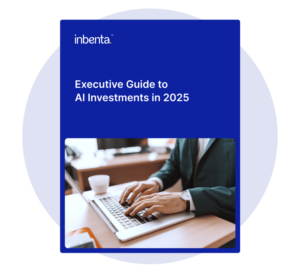Search engines have gone from rudimentary manual systems to sophisticated AI-powered chatbots. This article delves into the key milestones that have shaped the way we search and interact with information online.
The search engine has come a long way.
Before information went digital, people relied on manual systems like index cards and library catalogs. Today, we navigate vast digital landscapes with the help of advanced AI technologies. It has revolutionized how we access information, making it faster, more accurate, and incredibly convenient.
Here’s a timeline of where we started — and where we’re going.
Before 1990: Life before the internet
Before digital databases, information retrieval was a physical task. Libraries used index cards and tools like the Dewey Decimal system to organize books and resources manually — a time-consuming process that limited access to information.
1990: The first search engine
The digital age brought Archie in 1990, a primitive search engine that indexed FTP file lists, letting users find specific files online. This marked the beginning of digital search technology, which would rapidly evolve in the following decades.
1994: The web directory and first web crawler
Yahoo, launched in 1994, started as a web directory curated by people. That same year, WebCrawler introduced the first system to index entire web pages, allowing for automatic content retrieval.
1995: Natural language search
AltaVista, introduced in 1995, pioneered natural language processing in search engines, letting users search in plain language. This made it easier for anyone to find what they were looking for online.
1996: The Google revolution
Google transformed search with its PageRank algorithm, launched in 1996, which assessed the quality and relevance of web pages based on the structure of their links. This gave more accurate and relevant search results and set a new standard for search technology.
2010: Semantic search engines
Inbenta, launched in 2010, took search a step further by focusing on semantic understanding. This search engine could recognize context and grasp the intent behind a query. The results didn’t just deliver answers, they delivered the right answers.
2020s: Voice recognition
With the mainstream adoption of Siri and Google Voice Search, voice recognition technology became integral to search, allowing for hands-free operation and making digital interactions more natural and intuitive.
Today: The AI chatbot
Today’s AI-powered chatbots represent the forefront of search technology. These virtual assistants use natural language processing and machine learning to give you a personalized search experience. Even more, they learn from their interactions to improve their responses.
Tomorrow: One chatbot to rule them all
The future of search points to an integration of AI technologies, where a single conversational interface will handle all search-related interactions and transactions seamlessly. This will streamline the user experience, making it more cohesive and efficient, and it will make finding the answer as easy as asking the question.
In brief:
Early search was manual, using systems like index cards.
Archie was the first digital tool to help locate specific files online.
WebCrawler revolutionized search by indexing whole pages.
AltaVista introduced natural language search.
Google improved search accuracy with its PageRank algorithm.
Inbenta enhanced semantic understanding in search engines.
Voice search and AI chatbots have made interactions more intuitive.
Future search technologies will integrate AI more deeply.











